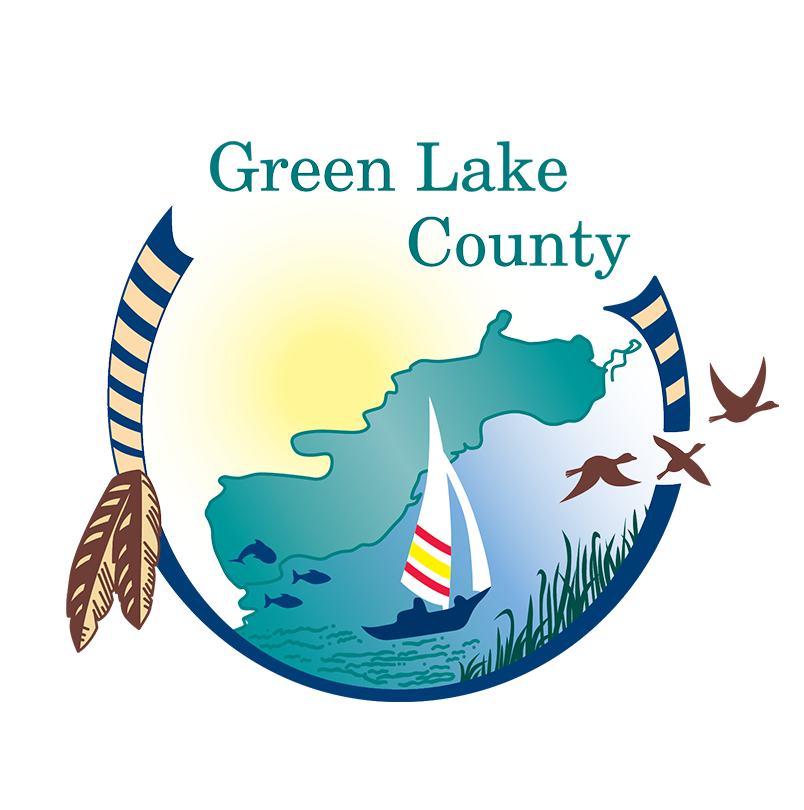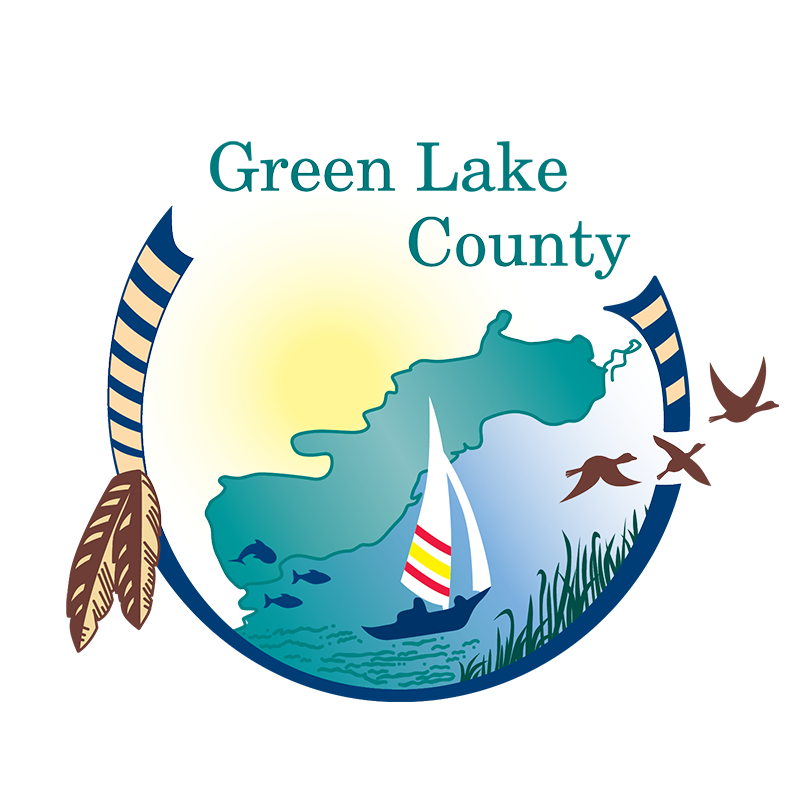|Green Lake County Health Department|
|Mission|
The mission of the Green Lake County Health Department is to promote and protect health and prevent disease.
|Vision|
We will become a leader in Public Health in Green Lake County promoting healthy people, thriving communities and safe environments.
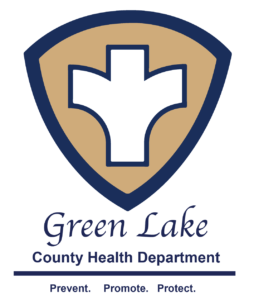
THE GREEN LAKE COUNTY PUBLIC HEALTH DEPT. CAN BE REACHED OR PAGED AFTER HOURS FOR EMERGENCY SITUATIONS BY CALLING THE SHERIFF’S DEPT. DISPATCH AT 920-294-4000.
About Us
|What is Public Health?|
Public health is the science of protecting and improving the health of people and their communities. This work is achieved by promoting healthy lifestyles, researching disease and injury prevention, and detecting, preventing and responding to infectious diseases. Public health is concerned with protecting the health of population as a whole. (CDC Foundation)
|Staff|
Rachel Prellwitz – Health Officer
Lauren Olson – Deputy Health Officer/Health Educator
Nancy Gimenez – Public Health Nurse
Allison Davey – Public Health Nurse
Lisa Rollin – Public Health Nurse
Copy Link
Annual Reports
Communicable Disease
|Communicable Disease|
A communicable disease, or contagious disease is an illness that can be transmitted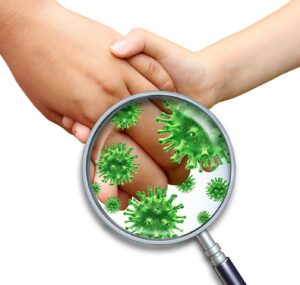 from person to person. Communicable disease investigations include sexually transmitted diseases, food-borne and waterborne illnesses, tuberculosis, and vaccine preventable diseases.
from person to person. Communicable disease investigations include sexually transmitted diseases, food-borne and waterborne illnesses, tuberculosis, and vaccine preventable diseases.
If you are a provider that needs to report a Category I communicable disease, please call the health department at 920-294-4070.
For general information on communicable diseases, click here.
For provider information, including state statutes and reporting requirements, click here.
Copy Link
Community Health Assessment (CHA) & Community Health Improvement Plan (CHIP)
|Community Health Assessment|
|Community Health Improvement Plan|
This report outlines the findings of the community health assessment (CHA) which identified the top health priorities that the Community Health Improvement Plan (CHIP) will address. The top health priorities that were identified in the 2023 Community Health Assessment are access to care (medical and dental), mental health, and substance misuse.
Green Lake County Health Department 2023 Community Health Assessment & Improvement Plan
For more information contact the Green Lake County Health Unit at (920)294-4070.
Copy Link
Diabetes Prevention Program

What is the PreventT2 Lifestyle Change Program?
PreventT2 is part of the National Diabetes Prevention Program (DPP), led by the Centers for Disease Control and Prevention (CDC). It is proven to help people with prediabetes prevent or delay development of type 2 diabetes.
What Will You Gain from the Diabetes Prevention Program?
As a participant of PreventT2 you will learn skills to lose weight, be more physically active, manage stress, and set goals. Throughout the program there will be private weigh-ins, food and activity tracking, and action planning to help ensure success.
Being part of a group provides support from other people who are facing similar challenges and trying to make the same changes. Together you can celebrate successes and find ways to overcome obstacles while working toward your personal health and fitness goals.
During the Diabetes Prevention Program, you will learn to:
- Eat healthy
- Add physical activity to your life
- Manage stress
- Stay on track when eating out
- Understand and respond to your food cues
- Stay motivated
- Solve problems that can get in the way of healthy changes
When Does the Diabetes Prevention Program Start?
New cohorts are started throughout the year.
How Do I Sign Up or Get More Information?
Click here, or you can contact Nancy, a Lifestyle Coach and DPP Coordinator by phone at (920) 294-4070.
Additional Resources
Visit: PreventDiabetesWI.org
To find out if you are at risk for Type 2 Diabetes, take the free Pre- Diabetes Risk Test here.
Copy Link
East Central Alliance for Nicotine Prevention
|East Central Alliance for Nicotine Prevention|
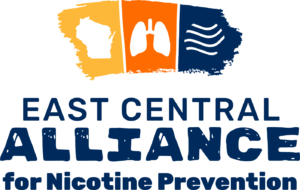
The East Central Alliance for Nicotine Prevention serves Fond du Lac, Green Lake, Marquette, and Waushara Counties. Our mission is to create nicotine and tobacco-free environments in which we live, work, and play, while promoting healthy lifestyles through education, advocacy, and policy.
Cessation
Make today YOUR day!
The following resources can help you:
For Wisconsinites:
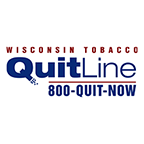
1-800-QUIT-NOW
Text “READY” to 34191
For American Indians
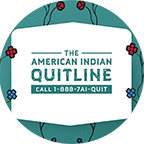
1-888-724-7848
For Veterans
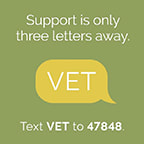
SmokefreeVet | Text VET to 47848
For Pregnant People, New Moms, and their Families
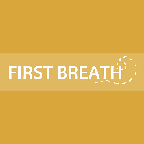
Visit First Breath for more information.
For Teens and Young Adults

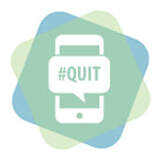
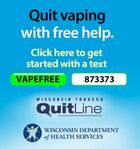
This is Quitting Text2Quit Live Vape Free
Text DITCHVAPE to 88709 Text READY to 34191 Text VAPEFREE to 873373
Other Free Quit Tobacco Resources
- SmokeFree TXT (Español)
- Tobacco Cessation Benefit Under ForwardHealth
- Quit Dipping or Chewing Tobacco
- Quitting Dip
- Military- Quit Tobacco
- Quit Resources from American Lung Association
- How to Help Someone Quit Smoking
Wisconsin Wins
Are you a tobacco retailer in Wisconsin?
WITobaccoCheck.org provides free state-approved retailer training on Wisconsin tobacco sales laws. WITobaccoCheck.org helps retailers avoid fines and prevent underage sales.
GET TRAINED TODAY!
WI Tobacco Check- FREE Employer Retail Training
Learn More
For Parents
Tobacco is Changing
Talk With Your Teen about E-Cigarettes
How to Support a Youth to Quit Vaping
Emergency Preparedness
|Public Health Emergency Preparedness|
This program involves community preparedness planning and exercises to respond to natural disasters, pandemic influenza, mass clinic operations, natural disaster events, and other public health threats.
Be Informed
- Ready Wisconsin
- WI DHS Health Emergency Preparedness and Response
- Utility Service Interruptions
- Flood Hazards and Recover
Build A Kit
Find out what you need in your emergency kit, click here.
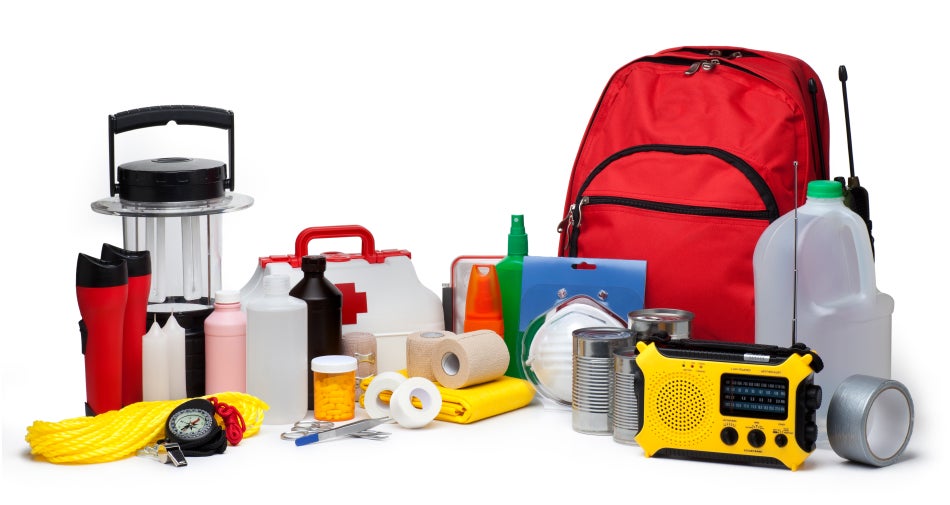
Volunteer
Are you interested in helping during a public health emergency or disaster?
Click the link to learn more about how to register as a volunteer on the Wisconsin Emergency Assistance Volunteer Registry.
Copy LinkEnvironmental Health Services
|Environmental Health|
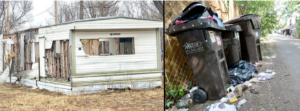
Environmental health is the branch of public health concerned with monitoring and lessening factors in the environment that affect human health and disease. Environmental staff investigate and resolve human health hazard complaints, provide lead risk assessments and investigations of homes with at-risk children, follow-up on animal bite cases for the rabies control program, and provide information and education regarding indoor radon gas, drinking water quality and vector-related diseases like Lyme.
Please click the links below for more information about Enviromental Health topics:
For more information regarding Radon or Lead Prevention, see our tabs below.
Copy LinkFood and Recreational Licensing
|Food and Recreational Inspection Program|

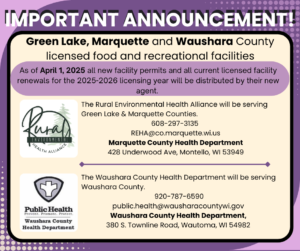
Rural Environmental Health Alliance (REHA) is a contract agent for the Wisconsin Department of Agriculture, Trade and Consumer Protection (DATCP), providing licensing and inspection activities in retail food establishments and recreational facilities. REHA was formed in 2025, by the health departments of Marquette and Green Lake Counties.
We cover over 844 square miles, are home to 38,000 residents and regulate about 607 licensed facilities, including:
- Retail food
- Lodging
- Public swimming pools
- Campgrounds
- Recreational education camps
- Tattoo and body piercing
The purpose of the Environmental Health programs is to promote and protect the health and safety of residents and visitors. In addition to licensing and inspections, environmental health staff investigate outbreaks of food and water-related illnesses and respond to other health hazards.
Use the links below to find more information related to licensing:
Licensing for Recreational Facilities
Licensing for Tattoo & Body Piercing
Transient/Temporary Food Events
Special Organization Licensing
Copy Link
Green Lake County Healthy Living and Resource Guide
Immunizations
|Immunizations|
Routine health care should include immunizations whether they come from your personal health care provider or from your local health department. Immunizations is one of the best ways to protect individuals from diseases.
Current Immunization Recommendations
Visit: Vaccines & Immunizations | Vaccines & Immunizations | CDC
Appointment Availability
At the Green Lake County Health Department, we strive to accommodate your busy schedule and minimize your wait time. Children and adult immunization appointments can be made by calling (920) 294-4070.
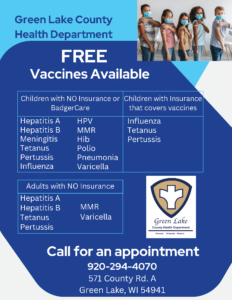
Vaccines for Children (VFC) Program
Provides vaccines to children through 18 years of age and:
-Medicaid eligible or enrolled
-Uninsured: no health insurance
-American Indian or Alaska Native
Vaccines for Adults (VFA) Program
-Provides vaccines to individuals who are age 19 and older and are uninsured.
Copy Link
Lead Poisoning Prevention for Children
|Lead Poisoning Prevention for Children|
Protecting children from exposure to lead is important to lifelong good health. Even low levels of lead in blood have been shown to affect IQ, ability to pay attention, and academic achievement.
low levels of lead in blood have been shown to affect IQ, ability to pay attention, and academic achievement.
What is Lead Poisoning?
- Lead poisoning happens when you swallow or breathe in lead, or drink water from lead pipes.
- Children under 6 years old are most at risk.
- Most children get lead poisoning from paint dust in homes built before 1978.
- Lead poisoning can cause learning disabilities and behavior problems.
- A lead test is the only way to know if a child has lead poisoning.
How Lead Affects the Body
Even if there are no clear signs of lead poisoning, lead still affects the body. Even low levels of lead in the blood of children can result in:
- Behavior problems and hyperactivity
- Lower IQ and learning problems
- Slowed growth
- Hearing problems
- Anemia
Facts for Families
Blood Lead Levels! What Do They Mean?
How to Prevent Lead Poisoning in Children
Prevent Lead Poisoning During Pregnancy
Keeping Homes Safe
Learn about Lead
About Lead Based Paint
More Information
Lead-Safe Wisconsin
Childhood Lead Poisoning Prevention-CDC
Copy Link
Radon
|Radon Gas|
The Green Lake County Health and Human Services Department is part of a four County Radon Information Center (RIC). The information center was started in 1996 and also serves Dodge, Marquette, and Waushara Counties. Our RIC has compiled information and resources to educate residents about radon, associated health risks, testing procedures and methods of reduction.
What is Radon?
Radon is a colorless, odorless, tasteless and chemically inert gas. It is a byproduct of naturally occurring decay of uranium in rock, soil and water. It can be found in all 50 states. Radon can be easily inhaled and damage lung tissue due to the gas’s radioactive properties. Lung tissue damage can lead to cancer over time.
How does Radon get into my house?
Trapped gasses build up pressure in homes. As air leaves the attic of a home, a negative pressure field is formed, drawing soil gasses through floors and walls.
Very high Radon in water can add to levels in the home. Typically, Radon levels in water must be extremely high to make a significant contribution to the overall Radon gas level in a home. This is normally not seen in this area of Wisconsin.
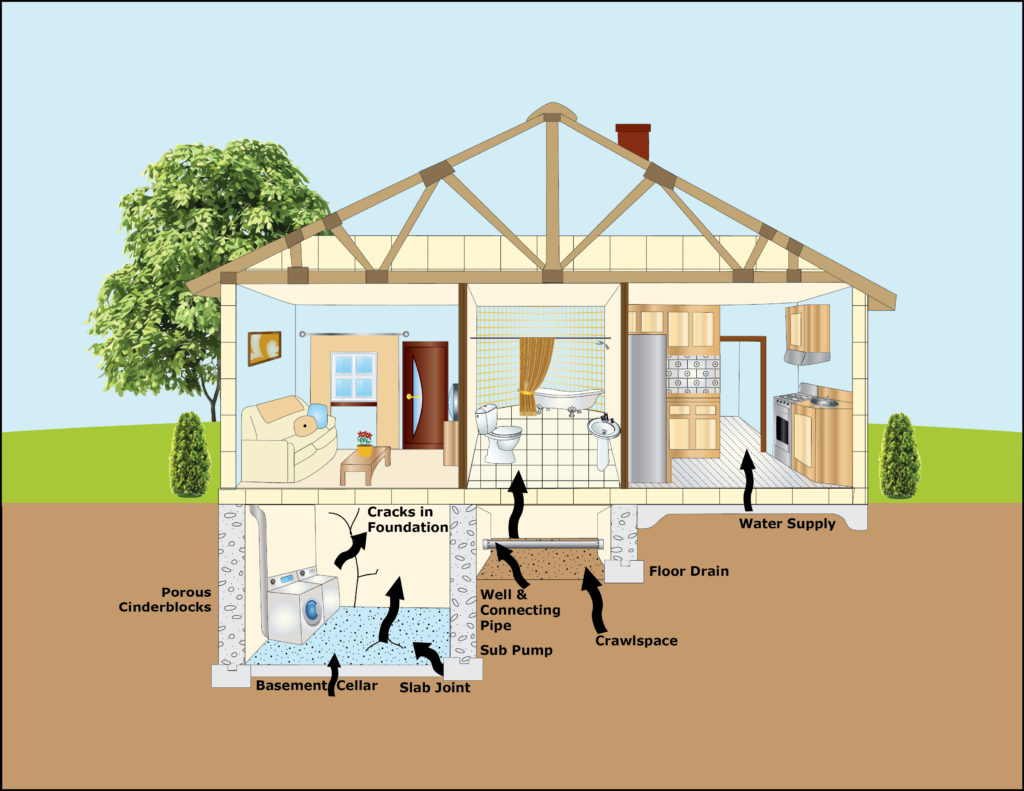
Image: United States Environmental Protection Agency (EPA)
What are the health effects associated with Radon?
The Surgeon General has warned that Radon is the second leading cause of lung cancer in the US. Only smoking causes more cases of lung cancer. Smokers exposed to elevated Radon levels have a much higher risk of lung cancer.
Radon exposure does not cause any short-term health effects such as shortness of breath, headaches, respiratory illnesses, coughing or headaches.
My neighbor doesn’t have high Radon. Do I need to test?
Yes. Radon levels can be different from home to home depending on a number of factors. This is commonly seen in our area. Typically, radon differs due to distance from the source but can also be affected by soil types and construction techniques.
How do I test for Radon?
You can test for radon with an EPA-listed kit or by hiring an EPA-listed contractor to test you home for you. Kits can be purchased on-line and at most local hardware stores. The Green Lake County Department of Health & Human Services – Health Unit offers kits to county residents for a cost of $7. The kits distributed by the consortium are simple, easy to use, and come with full instructions.
What level is considered “safe”?
The EPA states that any radon exposure may carry some risk, however; they recommend that homes be fixed if an occupant’s long term exposure will average 4 picocuries per liter (pCi/L) or higher.
Can the problem be fixed and for how much?
Yes, the radon problem can be fixed with a mitigation system installed that meets the needs of each individual home. Costs differ based on the home but can run anywhere from $600 to $1200. Although we highly recommend that you use a licensed radon contractor, sometimes homeowners can install the systems themselves.
Radon resistant construction can be incorporated during building. Costs typically will be under $100 for the materials. Contact the information center for more information.
Radon test kits are available at the following locations:
-Green Lake County Health Department, 571 Cty Rd. A, Green Lake
– Waushara County Health Department, 230 W Park St, Wautoma
– Marquette County Health Department, 428 Underwood Ave, Montello
Prices for the radon test kits are:
$8 for a short-term radon test kit
$21 for a long-term radon test kit
Resources for Additional Services
- Adult Abuse investigation – Call Adult Protective Services at (920)294-4070
- Birth and Death Certificates – Call Wisconsin Vital Records at (608)266-1371
- Child Abuse and Neglect investigation – Call Green Lake County Human Services Child Protection Help line (920)294-4070
- Emergency – 911
- Home Health Care – Reach out to your primary care provider for further assistance
- Poison Control Center -1-800-222-1222
- Urgent or Emergency Health Care –
- ThedaCare Medical Center-Berlin Emergency Department, 225 Memorial Drive, Berlin, WI
- SSM Health Ripon Community Hospital, 845 Parkside St, Ripon, WI
- Call 911
- Medical Assistance can be found at – https://www.dhs.wisconsin.gov/badgercareplus/index.htm or www.cms.hhs.gov/home/medicaid.asp
- Medicare – www.medicare.gov
- Children with Special Health Care Needs – www.northeastregionalcenter.org/
- Pandemic Influenza (Flu) Information – http://pandemic.wisconsin.gov/
- Tobacco Quitline – 1-800-QUIT-NOW (800-784-8669)
Water Testing
|Well Water Testing|
Testing your water keeps you and your family healthy!

According to the CDC, the presence of certain contaminants in our water can lead to health issues, including gastrointestinal illness, reproductive problems, and neurological disorders. Infants, young children, pregnant women, the elderly, and people with weakened immune systems may be especially at risk for illness.
Where can you get sample bottles for testing?
Sample bottles are available for pick-up at the Green Lake County Health Department:
Monday – Friday (except for Legal Holidays)
8:00 am to 4:30 pm
There is a fee for each test and results take approximately one week.
Fee Exempt Water Testing Kit:
We offer free well testing to qualified private well users through the Wisconsin Well Testing Access Program (WellTAP). To qualify for WellTAP, all of the following criteria must be met:
- The well serves someone who is pregnant, a child 12 or under, or a person with weakened immune system.
- The well serves your primary residence.
- A financial or other burden prevents you from testing on your own.
For more information on what should your water be tested for and how often, visit: WI DHS
For questions, contact the Green Lake County Health Unit at (920)294-4070.
Copy LinkWell Badger Resource Center
Well Badger Resource Center is your one-stop connection to community, social, health, and government programs — a place to find what you need, when you need it.
Statewide resources are available at:
- https://www.wellbadger.org/
- via phone at 1 (800) 642-7837
- via text at (608) 360-9328
- via email help@wellbadger.org
Copy Link
Wisconsin Well Women Program
|Wisconsin Well Woman Program|
The Wisconsin Well Woman Program provides free breast and cervical cancer screenings to women with little or no health insurance. The Winnebago County Health Department coordinates the program for women in the: Calumet, Green Lake, Fond du Lac, Marquette, Outagamie, Sheboygan, Waupaca, Waushara, and Winnebago.
Get connected to a Wisconsin Well Woman Program Coordinator today!
You can text the WWWP Coordinators at 920-249-5111 during office hours; Monday – Friday, 8:00 AM – 4:30 PM.
What does the program pay for?
- Breast and pelvic exams
- Mammograms (breast cancer screening)
- Diagnostic screenings and tests, such as ultrasounds and biopsies
- Pap tests (cervical cancer screening)
- HPV screening
You may qualify if:
- You are a woman 40-64 years old
- You are a woman 35-39 years old with symptoms or concerns
- You do not have health insurance or your insurance policy has a high deductible for screenings or tests
- Your income is within the program guidelines.
How to apply:
- Fill out this form, or
- Email us, or
- Call us at (920) 727-8650 or 1 (800) 807-0522
- Your healthcare provider can also help you enroll.
The Wisconsin Well Woman Program pays for many, but not all, follow-up tests to diagnose breast or cervical cancer. Contact your program coordinator for details.
Copy LinkWIC (Women, Infants and Children)
|WIC (Women, Infants, Children)|
WIC Clinics
Please call 715-540-8183 to schedule a WIC appointment.
For more information regarding WIC (Women, Infants and Children) please go to the following website: http://www.dhs.wisconsin.gov/wic/
Visit our local WIC program on Facebook! Noble Community Clinics WIC
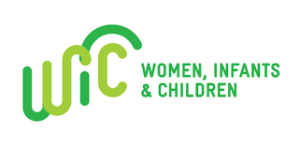
Copy Link
